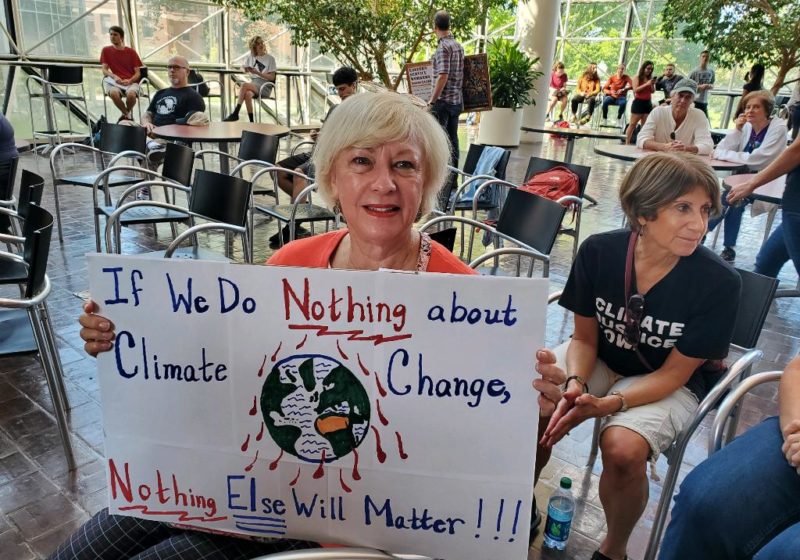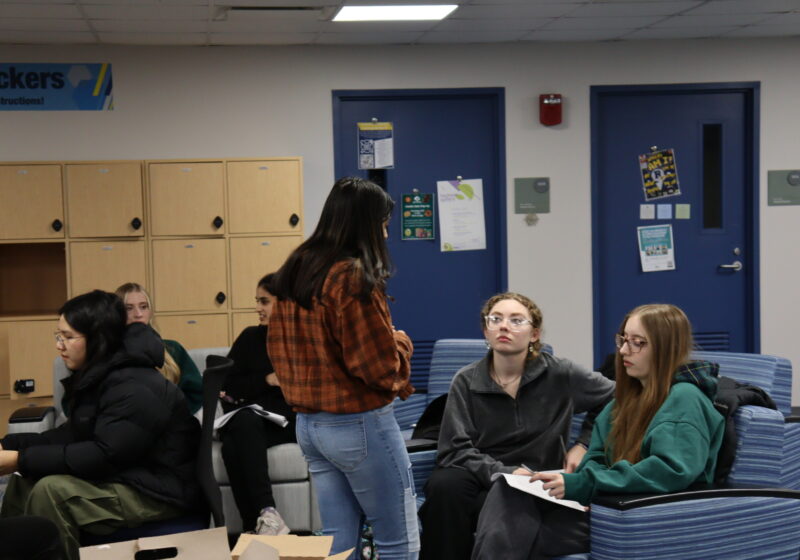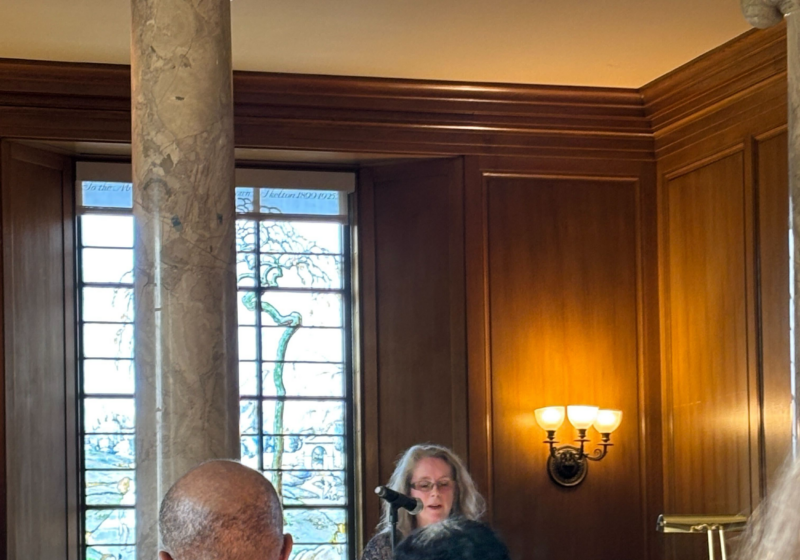At UR’s “Climate Strike” this past Friday, Pachamama Alliance member Susan Staropoli named three ways people could respond to climate change: denial, defeat, or action. She, along with the dozens of people gathered in Hirst Lounge with signs, petitions, and branded T-shirts, were choosing action.
“This is a pivotal time in history when we decide who we are as a human species,” Staropoli said to the audience.
The strike was UR’s contribution to the global movement of protests, marches, and speeches calling for an immediate shift to sustainable living, spearheaded by 16-year-old Swedish activist Greta Thunberg. For the students, alumni, faculty, and community members gathered in Hirst Lounge, the matter was nothing short of urgent.
“We need action!” Myron Moxlay, a member of Eastern Service Workers Association, said.
“I am scared, and I think we all are,” said graduate student Hannah Hasson.
The event speakers spoke candidly about the threat they feel climate change poses to our future.
Philosophy professor Randall Curren began his speech saying, “Our house is burning. It’s also underwater.” He encouraged attendees to prepare for an uncertain future: “It’s very hard to imagine the world being radically different, before very long, from the way it is now. That’s what we’re all faced with.”
One student spoke during the open mic session about how changes in air quality are affecting people with asthma, such as her father. “It does concern me that the air is suddenly becoming unsafe for my dad,” she said.
Earth and environmental sciences professor Karen Berger cautioned against ignoring the global and unequal effects of climate change.
“The regions of coastal West Africa and Northeast India contributed almost nothing to the global stock of greenhouse gases in the atmosphere,” she said, “yet they are the ones who are acutely vulnerable to the impacts of that warming.”
Both speakers and attendees were eager for the strike to raise awareness in the general public. University alum Anne Kriz,’84, said that she hoped the strike would “raise the consciousness of even a few people.”
Many expressed impatience for the calls to action to move beyond calls.
Senior Ashley Bardhan, who is affiliated with the Campus Times, and who organized the strike, advocated for civil disobedience as a catalyst for change.
“We can’t live like everything is normal,” she said, “because it’s not normal.”
Physics graduate student Imani West-Abdallah was happy that students were organizing, but expected to see more rage.
“This is an acceptable way to voice our discomfort,” she said. “In a way I feel like we’re doing what we’re told.”
Staropoli hopes that the global strikes will make the sustainability movement large enough to bring about serious change on a governmental level.
“[Cultural change] takes a certain percent of people that become a tipping point,” she said, “At some point, we’re going to hit a tipping point, and governments will have to follow, people will have to follow.”
There will be a citywide climate march at Rochester City Hall on Friday, Sept. 27 at 3:30 p.m.






